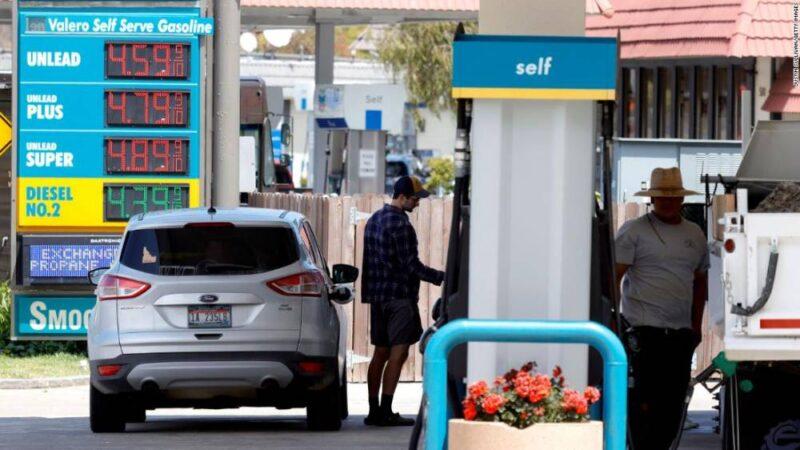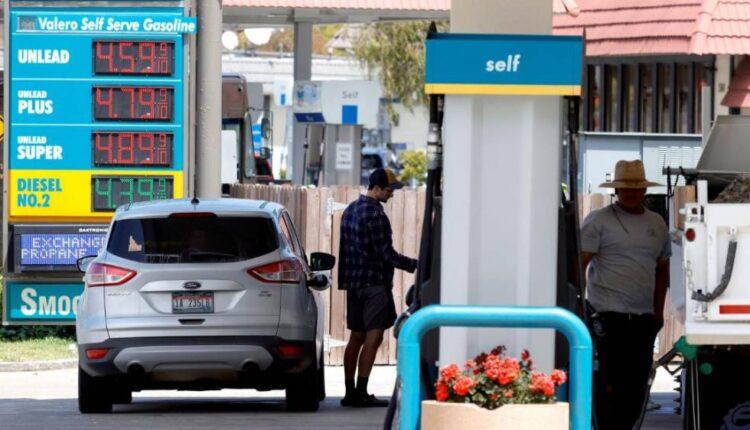A version of this story first appeared in CNN Business’ Before the Bell newsletter. Not a subscriber? You can sign up right here.
London (CNN Business)US prices continue to march higher, triggering concerns among economists, policymakers and business leaders about the sustainability of the post-pandemic recovery.
What’s happening: The US Consumer Price Index, a key inflation gauge, jumped 0.9% in June, the largest one-month increase in 13 years. Over the past 12 months, prices were up 5.4%.Gas prices rose 45.1% compared to a year earlier. Food prices were 2.4% higher, while prices for dining out rallied 4.2%. But even stripping out volatile food and energy prices, so-called “core CPI” rose 4.5% — the largest 12-month increase in that closely-watched measure in 30 years.

Prices keep soaring: Inflation rockets to a 13-year highDetails, details: Used car prices have skyrocketed more than 45% over the past 12 months. Meanwhile, airfare has increased almost 25% and hotel and motel prices rose 15% — though those prices are still below June 2019 levels.
This data is hugely important, since out-of-control inflation could jeopardize the health of the economy as it snaps backs following Covid-19 shutdowns. Officials at the Federal Reserve maintain that the spike in inflation is temporary, but they’re watching the situation closely in case they need to roll back crisis-era support sooner than expected.Read MoreOn the radar: Divisions are deepening over whether the Fed has become too complacent.On one side is team optimist. Gus Faucher, chief economist at PNC Financial, told my CNN Business colleague Chris Isidore that “underlying inflation remains under control,” and that comparisons to costs a year ago are making the situation appear worse than it actually is. He thinks this effect will “wash out of the data in the near term.”On the other side are the skeptics, whose ranks appear to be swelling.”Inflation could be worse than people think,” JPMorgan CEO Jamie Dimon told analysts on Tuesday. “I think it’ll be a little bit worse than what the Fed thinks. I don’t think it’s only temporary.”Economists at Citi point out that rising wages, the result of employers struggling to fill open jobs, remain “one of the clearest indications that underlying inflationary pressures could be more persistent.” They see the increase in food prices away from home as “a sign that higher labor costs are being fed through to higher consumer prices.”Investor insight: US stocks fell on Tuesday after the inflation data was released but remain near record highs. A survey of global fund managers by Bank of America published this week found that 70% of respondents view inflation as transitory, while 26% believe it is permanent. Market fears seem to be easing as the price of commodities like lumber come back down to Earth.Yet some strategists are voicing anxiety, especially as inflation expectations for 2022 tick up.”The fact that inflation forecasts are still creeping up for next year indicates that economists are starting to price in a more inflationary future than they thought,” Jim Reid of Deutsche Bank said in a note to clients Wednesday.What will Jay say? Attention now turns to testimony from Federal Reserve Chair Jerome Powell before the House Financial Services Committee. You can bet he’ll field questions about the Fed’s approach given the recent data.And remember: it’s not just a worry in the United States. The United Kingdom said Wednesday that inflation for the 12 months to June increased 2.4%, above the Bank of England’s target.
Deal boom powers huge profits for big banks
Investment bankers have had a busy year as companies race to raise money via hot markets and scoop up competitors.Among those reaping the benefits? Their Wall Street employers.The latest: Goldman Sachs (GS) and JPMorgan Chase (JPM) reported huge second quarter profits on Tuesday, topping expectations. JPMorgan hauled in $11.9 billion in profit during the second quarter, up 155% from the same period of 2020, while Goldman reported a net profit of nearly $5.5 billion, a sharp increase from $373 million the same quarter a year ago.Fees from advising on initial public offerings and mergers and acquisitions played a big role. At JPMorgan, global investment banking fees hit an all-time high, while Goldman Sachs said its investment banking unit had its second best quarter ever.That makes sense: The April-to-June quarter was the busiest for US IPOs in over two decades, while the first six months of 2021 saw global mergers hit a record.”Capital markets have just been wide open,” Jeremy Barnum, JPMorgan’s chief financial officer, told reporters during a conference call.Goldman Sachs CEO David Solomon indicated that the second half of 2021 looks equally impressive.”Our investment banking backlog is at a record level as strategic discussions with our corporate client base remain high, reflective of elevated CEO confidence and the prospect of continued economic recovery,” he told analysts.Up next: Bank earnings continue Wednesday with Bank of America (BAC), Citi (C) and Wells Fargo (WFC), which are due to post results before the opening bell.
Divided politics could cost America its perfect credit rating
There are plenty of reasons to worry about the erosion of democratic norms and growing political polarization in the United States. Add concerns about the country’s credit rating to the list.Fitch Ratings warned on Tuesday that the country could lose its perfect rating in part due to “a deterioration in governance,” my CNN Business colleague Matt Egan reports.The credit ratings firm said that “the failure of the former president to concede the election, and the events surrounding the certification of the results of the presidential election in Congress in January, have no recent parallels in other very highly rated sovereigns.”Fitch also pointed to efforts to curb voting rights at the state level and divisions in Congress that could make it harder to enact legislation as ongoing risks.Remember: Fitch reaffirmed America’s AAA credit rating. But that doesn’t mean it’s set in stone. S&P Global Ratings, another credit ratings firm, downgraded the United States in 2011.
Up next
Bank of America, Citi, BlackRock (BLK), Delta Air Lines (DAL), PNC (PNC) and Wells Fargo report earnings before US markets open.Also today:
- The US Producer Price Index, another important measure of inflation, posts at 8:30 a.m. ET.
- Federal Reserve Chair Jerome Powell kicks off two days of testimony before Congress at 12 p.m. ET.
Coming tomorrow: Earnings from Morgan Stanley (MS), Truist (TFC) and UnitedHealth (UNH).
Source: edition.cnn.com

